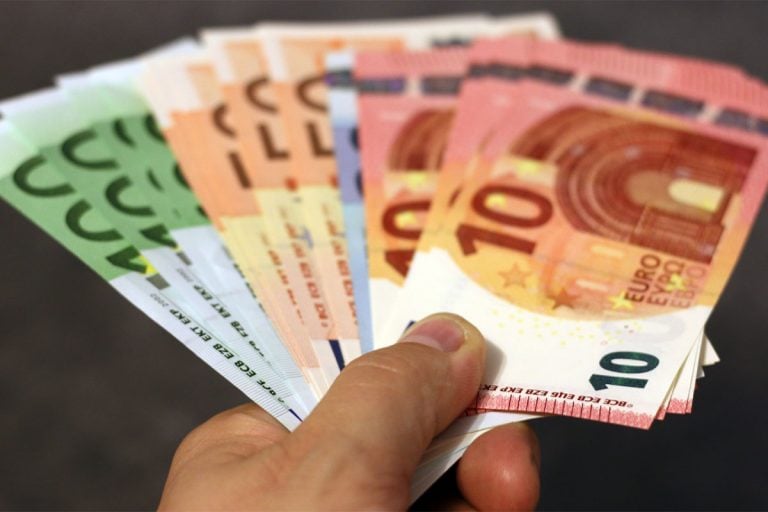Learn the Days of the Week in Italian: Easy Guide
What are the days of the week in Italian?
The days of the week in Italian are:
- Lunedì (Monday)
- Martedì (Tuesday)
- Mercoledì (Wednesday)
- Giovedì (Thursday)
- Venerdì (Friday)
- Sabato (Saturday)
- Domenica (Sunday)
Learning each Italian day of the week is a great way to learn the language and increase your understanding of Italian culture. So, what are the days of the week in Italian?
Here is a list of the 7 days of the week in Italian and English with example sentences for each day.
Lunedì (Monday)

Lunedì is the first day of the week in Italy. The name derives from the Latin phrase “dies lunae” which translates to “day of the moon.”
Esempio: “Lunedì io vado al lavoro.” (Example: “On Monday I go to work.”)
Lunedì is a busy day for most Italians. They often eat a hearty meal on Lunedi’ to start the week. Many businesses and schools open on Lunedi,’ and the streets are bustling with activity. It’s a great day to take in the sights and sounds of Italian culture.
Martedì (Tuesday)

Martedì is the second day of the week. Tuesday derives from the Latin phrase “dies Martis,” which translates to “day of Mars.”
Esempio: “Martedì vado a fare shopping.” (Example: “On Tuesday, I go shopping.”)
It is an excellent time for Italian families to get together for a meal. Italians often enjoy traditional pasta or pizza while spending quality time with loved ones. Martedi’ is a special day in Italian culture that brings people together to share good food and conversation.
Mercoledì (Wednesday)

Mercoledì is the third day of the week in Italian. It is derived from the Latin phrase “dies Mercurii” which translates to “day of Mercury.”
Esempio: “Mercoledì faccio una passeggiata.” (Example: “On Wednesday I go for a walk.”)
Wednesday is an important Italian day of the week. It’s the midpoint of the workweek and is often celebrated with a traditional Italian meal. Families gather to enjoy home-cooked meals, while friends may meet for aperitivo or small plates. Mercoledi’ is a day of relaxation, reflection, and enjoying Italian culture.
Giovedì (Thursday)

Giovedì is the fourth day of the week in Italian. The name derives from “dies Iovis” which translates to “day of Jupiter.”
Esempio: “Giovedì io vado a teatro.” (Example: “On Thursday I go to the theatre.”)
Giovedi in Italy is unique because it’s the day to look forward to the weekend! People love to get together with friends and family for dinner and drinks.
There is usually a relaxed and happy atmosphere, especially in the cities where people flock to the piazzas for an aperitivo. Giovedì is a day to celebrate the end of the work week and the start of the weekend!
Venerdì (Friday)

Venerdì is the fifth day of the week in Italian. It is derived from the Latin phrase “dies Veneris” which translates to “day of Venus.”
Esempio: “Venerdì io vado al cinema.” (Example: “On Friday I go to the movies.”)
Yes, Italians love Venerdi’! It is the most popular day of the week for socializing and enjoying time with friends and family. Venerdi’ is a time to relax and enjoy life.
Many take advantage of the weekend by going out to restaurants and bars. It is also a time for shopping, attending cultural events, and catching up on errands. Venerdi’ is the perfect day to start the weekend with a bang!
Sabato (Saturday)

Saturday is the sixth day of the week in Italian. Sabato derives from the Latin phrase “dies Saturni” which translates to “day of Saturn.”
Esempio: “Sabato io faccio la spesa.” (Example: “On Saturday I do the shopping.”)
The main difference between American and Italian days of the week is that Saturday is called Sabato in Italian. Sabato is the sixth day of the week and is a day for relaxation. People often spend time with family, go out with friends, or relax at home.
Domenica (Sunday)

Sunday is the seventh day of the week in Italian. It is derived from the Latin phrase “dies Solis” which translates to “day of the sun”.
Esempio: “Domenica io mi riposo.” (Example: “On Sunday I rest.”)
Domenica is an important day for Italian people because it is the day that is traditionally set aside for family gatherings and meals. Sunday is also the day many churches hold Mass, making it a day of religious observance.
People often gather together to share meals and spend time with loved ones. Domenica is a day to reflect on the past week and to look forward to the week ahead. It is a day where people can enjoy good food, music, and conversation and appreciate the time spent together.
Suggested Reading:







